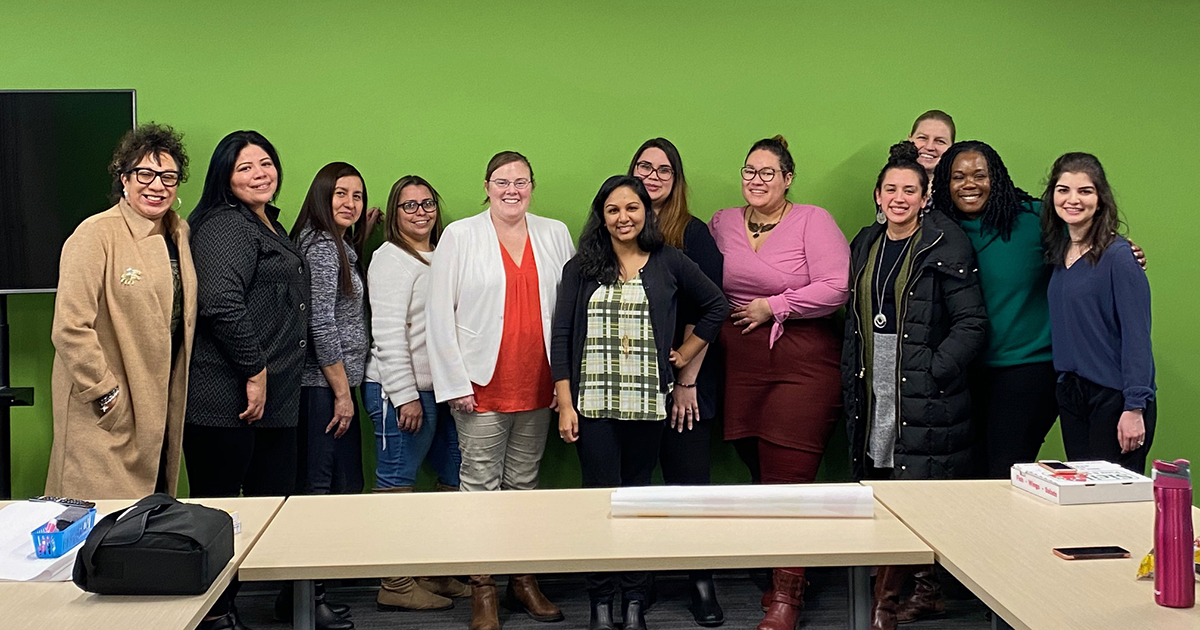The COVID-19 pandemic ushered in unprecedented mandatory closures of K–12 schools across the country as states grappled with attempts to slow the spread of the disease. Although most states provided licensed child care programs with the option to remain open, they also restricted the number of children that programs can serve, including limiting care to essential workers and capping the number of children and staff present. With more than 50 million children and youth out of school and ongoing capacity restrictions on licensed child care programs, parents and caregivers are responding in different ways.
Although we do not know the exact number of children who are unable to return to their day care programs because of COVID-19 closures and program-size restrictions, we imagine that parents and caregivers who need an alternative to licensed child care are relying on their network of family, friends, and neighbors for care. Within the research and advocacy communities, this is often referred to as informal child care. Research indicates that informal care is widespread, particularly in child care deserts with a severe undersupply of licensed child care. For example, licensed child care slots in Detroit can accommodate only 47 percent of children from birth to age 5. This service gap will likely widen as licensed child care programs remain closed or offer reduced slots or hours. Continued social-distancing measures could also permanently shutter some of these programs as businesses struggle to remain afloat.
Working with the David and Lucile Packard Foundation on the Informal Caregivers Research Project in the Bay Area, and the W.K. Kellogg Foundation on the Informal Child Care in Detroit project, we have spent several years learning about informal care. This work offers insights into current discussions of how best to support young children and their families amid the COVID-19 pandemic. During our research, we heard informal caregivers identify several needs. In the second phase of the Informal Child Care in Detroit project, we partnered with three community organizations in southwest Detroit—Congress of Communities, Detroit Hispanic Development Corporation, and Living Arts—to offer programming designed to address these needs and enhance the quality of informal child care.
We used the following strategies:
- Integrate informal caregivers’ input to determine programming topics related to child development and education in order to design programs and resources that meet the varying needs of this diverse group.
- Leverage informal caregivers’ input to determine when to meet and where to offer programming (for example, at community sites such as libraries and local nonprofits) to provide convenient access to supportive programs.
- Connect with informal caregivers through multiple channels, including social media, text messages, and phone calls, to share information and resources about informal caregiving.
- Build informal caregiver networks by encouraging regular attendance at events to facilitate a deeper connection with other caregivers and to provide caregivers with an expanded network of trusted sources for information and advice on caring for children. Our community partners advise offering child care, hearty meals, and incentives such as gift cards and books for children to bolster caregivers’ program participation.
As states leverage data to inform responsible steps to reopen communities in the recovery phase of COVID-19, we must also consider opportunities to support informal caregivers. As parents, policymakers, and providers wrestle with questions about children returning to school or to formal child care programs, informal caregivers will be affected, particularly if schools or formal care programs remain closed, if they continue to operate under restrictions that reduce program capacity, or if parents decide to keep their children out of formal care programs. In cities such as Detroit where a service gap existed for formal care programs even before the pandemic, that gap has the potential to widen in the face of continued social-distancing measures. With this in mind, what supports can be put into place in the long term to help support informal caregivers?
Most parents we spoke with in the Bay Area and Detroit reported that they did not pay their informal caregivers, and many informal caregivers reported that they did not seek financial compensation. Most informal caregivers are family members who provide care out of love and a desire to help their family. But states such as California and Michigan offer a child care subsidy for unlicensed child care, and this subsidy is seemingly underused. We found that informal caregivers are largely unaware of the child care subsidy, and for those who are aware of it, income eligibility requirements, a complex application process, perceived low reimbursement rates, and fear of government interference prevent many families from seeking the subsidy.
To address these barriers to participation in the child care subsidy, states can broaden program advertisement, reconsider income eligibility requirements, and increase subsidy reimbursement rates. Easing the burden of applying for the subsidy is also essential to program uptake. For example, states can make the application shorter or embed it in other applications for social services benefits; they can also connect applicants with a navigator who will help them complete the application.
Child care is integral to the American workforce, and plans to revive the economy must take child care provision into account. The challenges that COVID-19 poses to formal child care will persist as long as social-distancing guidelines continue to limit program operations and contribute to program closure. In the face of these challenges, parents will continue to turn to informal providers to meet their child care needs. Our work brought informal caregivers’ unmet needs to the forefront and offers recommendations for supporting caregivers. These recommendations can enhance the resilience of the informal child-care sector by offering strategies such as programming aimed at community-building and enhancing knowledge of child development.
By bolstering providers’ ability to offer high quality care and education during this crisis, these efforts might positively impact children’s readiness for kindergarten and later education. Sustaining and scaling these supports will also prepare the informal child-care sector to respond to subsequent crises. We will continue to share learnings from our work in Detroit to support informal providers in the early childhood education and care community, with the goal of advancing attention to and support for informal child care.




